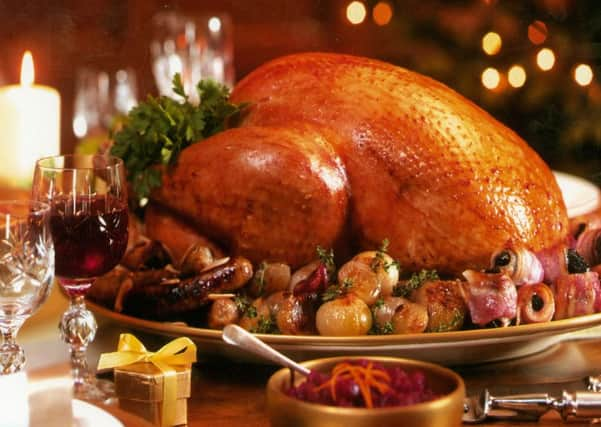Stephen Jardine: Food Standards Scotland scaring people out of business


In a dining room in Aberdeen, the staff of a Government quango are gathered for their annual Christmas lunch. The starter is clear soup. Well it’s actually water ... but not just any old water – it’s been boiled and purified. That’s followed by turkey, served pretty much incinerated after eight hours at 240 degrees. There is no pudding again this year after the notorious incident with the sixpence and don’t even think about asking for cheese.
If that approach to food seems joyless and uncompromising, spare a thought for cheesemaker Tricia Bey. This week she announced her Barwheys Dairy is to close and the finger of blame is being very firmly pointed at an overzealous Food Standards Scotland, based in Aberdeen.
Advertisement
Hide AdAdvertisement
Hide AdTen years after starting production in an attempt to revive traditional cheesemaking in Ayrshire, Tricia has simply had enough. She took to social media to announce she has stopped production and will close her dairy this year, blaming rising costs and over-regulation of the industry.
She said: “Increasingly invasive and onerous inspection and testing regimes have taken all the joy out of our previously happy enterprise.”
She believes responsibility for this lies with Food Standards Scotland which has also been in a long-running wrangle with another producer, Errington Cheese. The organisation denies having a vendetta against artisan producers but there is growing concern about the way it goes about its business.
Stringent food hygiene standards are not something to be taken lightly. Earlier this month two children died in an E-coli outbreak in Leicestershire and public health officials are still trying to identify the cause. Whatever can be sensibly done to limit the risk of food leading to sickness and illness should be done but what is sensible when it comes to limiting risk?
So many things can go wrong. A chef might not wash their hands properly, a knife might not have been adequately cleaned, a bug may still be on a lettuce leaf and soil residue on the skin of a potato. To eliminate all potential causes of problems is practically impossible but it seems that is what Food Standards Scotland is on a mission to do.
Faced with some of the big issues affecting salmon farms or the repeated instances of mislabelling in the meat industry, small artisan producers with limited resources are an easy target in comparison. What is proportionate has been lost in the clamour to send out some kind of message.
There is another way. I lived in Paris for two years where most cheese shops would struggle to satisfy food hygiene regulators here. However artisan production flourished because regulation there was built on common sense and a proportionate approach to risk by inspectors and consumers. Here a heavy-handed approach based on regulation rather than cooperation is sending a shiver through small-scale food production. Food Standards Scotland will say they are simply making our country a safer place for us to live and eat. But if the way they are doing it is literally scaring people like Tricia Bey out of business, then something is going very wrong in the way the organisation conducts its affairs.